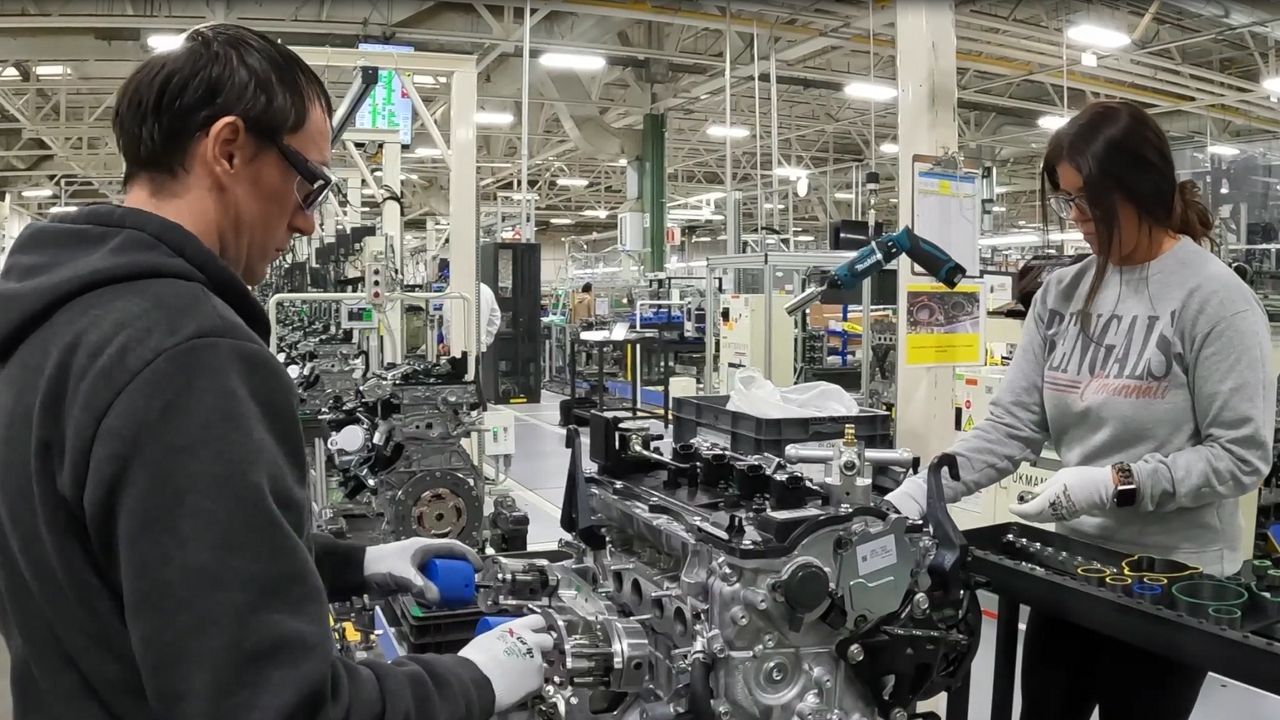GEORGETOWN, Ky. — Gov. Andy Beshear (D) announced another major step in the production of electric vehicles as Toyota committed to transition its largest manufacturing facility to electric.
The company said that it would keep 700 full-time jobs in Kentucky and establish their first U.S.-assembled battery electric vehicle at Toyota Motor Manufacturing, Kentucky in Georgetown. The project is part of a $591 million commitment for future projects at the Scott County Facility.
“This is incredible news that further cements Kentucky as the center of the electric vehicle sector,” Beshear said. “Toyota has long been a vital part of the automotive industry in the commonwealth, and now the company is positioned to help lead us into the future.”
Toyota leadership confirmed plans to assemble an all-new, three-row SUV BEV at the Georgetown operation. The site is Toyota’s largest manufacturing facility in the world. Through an ongoing incentive agreement with the state, the governor said the company has committed to the retention of nearly 9,000 employees at the Georgetown operation.
This project follows an Oct. 2021 announcement of a $461 million investment to upgrade the Georgetown facility and prepare the site for future vehicle electrification. That announcement included the transition of 1,400 indirect employees to direct Toyota roles.
“Toyota Kentucky set the standard for Toyota vehicle manufacturing in the U.S., and now we’re leading the charge with BEVs,” said Susan Elkington, president of Toyota Motor Manufacturing, Kentucky.
In 2006, the operation was Toyota’s first plant in the United States to manufacture hybrid electric vehicles and was later selected to assemble fuel cell modules for use in hydrogen-powered, heavy-duty commercial trucks. The plant also plays a critical role in Toyota’s global electrification strategy, with an aggressive goal to offer electric or hybrid versions of every vehicle model by 2025.
Toyota Motor Corp. plans to sell 2 million zero emission hydrogen and battery electric vehicles worldwide per year by 2030. In the U.S., the company plans to sell 1.5 million to 1.8 million vehicles by 2030 that are at least partially electrified.
Toyota’s new President Koji Sato has promised what he called an aggressive shift on “electrification" of vehicles including hybrids.
The company has been criticized by environmental groups for falling behind in electric vehicle sales and relying on hybrids, which burn gasoline, for future sales.
Suggs pointed to a “portfolio approach” by Toyota that provides options to consumers.
“We truly believe that electrification is truly hybrid, plug-in hybrid, fuel cell, all-electric," he told reporters Wednesday. "And that’s what the customers are telling us as well. And we believe that there’s going to be a gradual approach to electrification going forward.”
Toyota now offers the bZ4X electric compact crossover, built on what’s called the e-TNGA platform. That stands for “Toyota New Global Architecture,” and is also used in its Prius and Lexus models. The electric platform was developed in collaboration with Subaru.
The bZ4X is available in Japan, the U.S., and parts of Europe, such as Germany and Britain, as well as China and Thailand.
Toyota also recently announced a new electric car to be sold in China, called bZ3. It will use technology developed with Chinese EV manufacturer BYD Co. in a collaboration that also includes state-owned Tianjin FAW and other partners.



